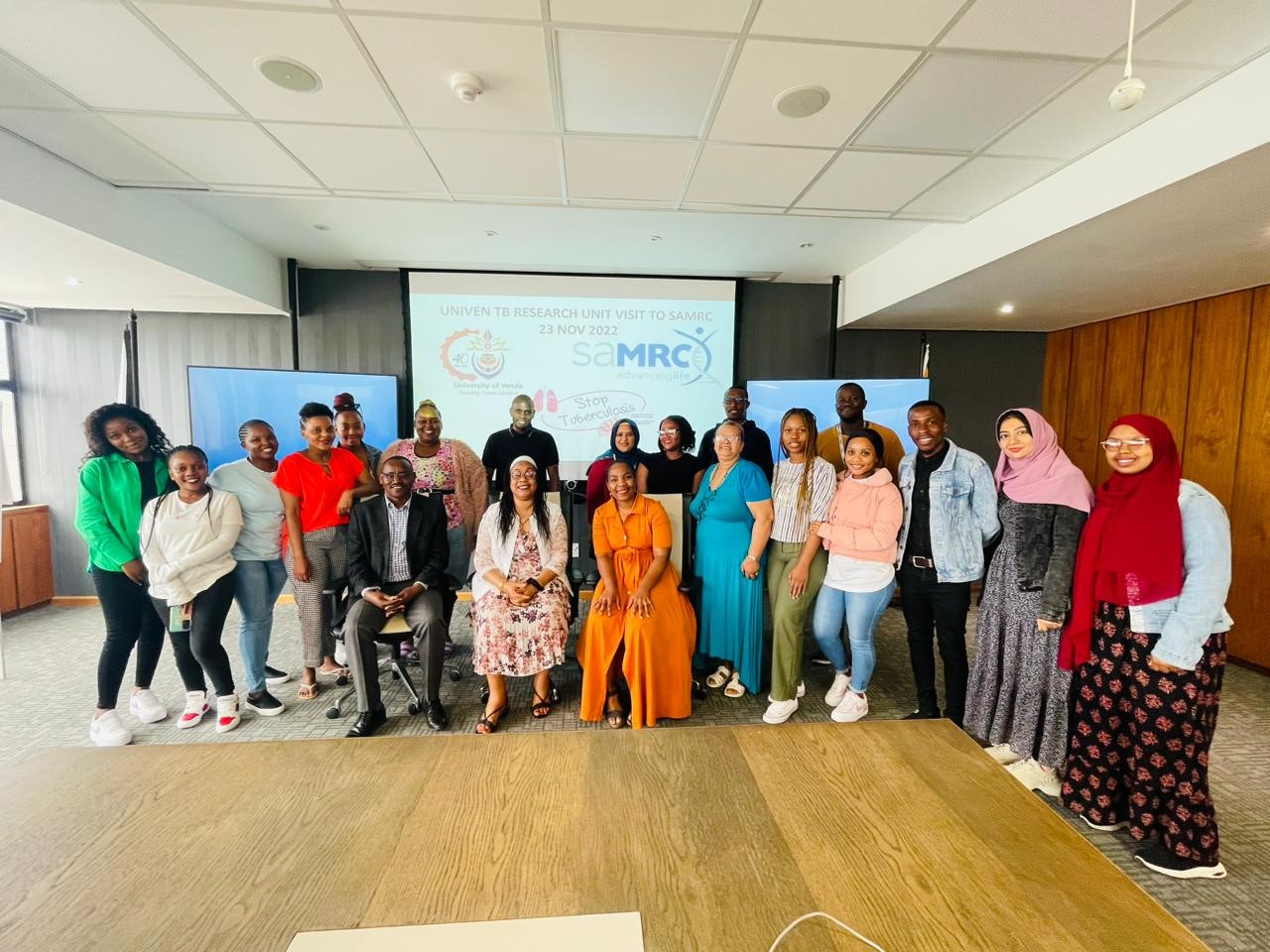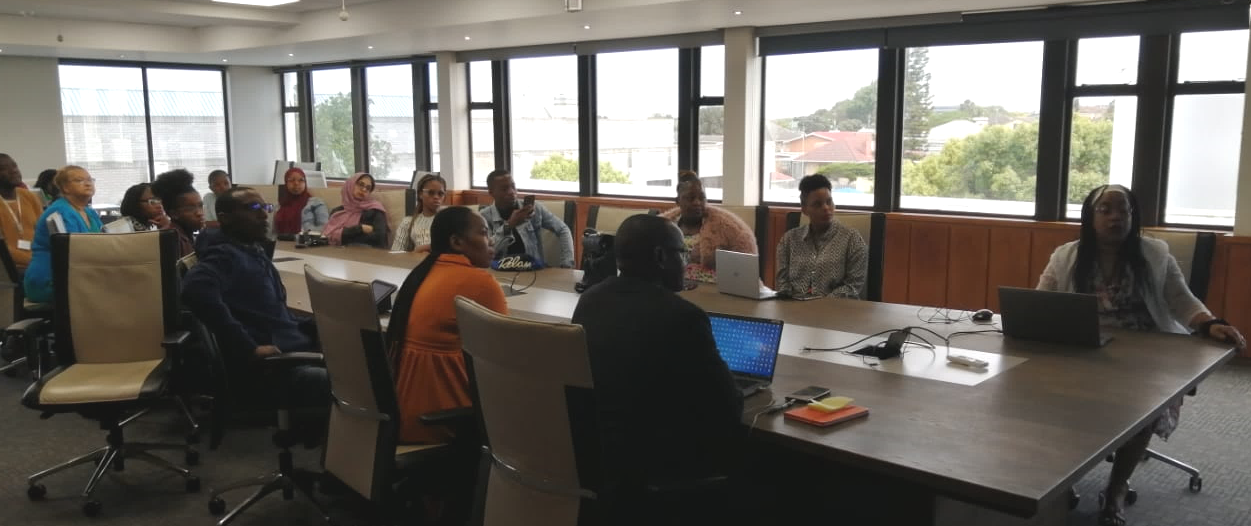The University of VENDA TB Research Unit visits SAMRC
The South African Medical Research Council (SAMRC)’s Research Capacity Development team was recently graced by a visit from the University of Venda (UNIVEN) TB Research Unit. The Unit is led by Professor Afsatou Traore, a grant recipient of the SAMRC Research Capacity Development Initiative (RCDI) funding since 2020.
Professor Afsatou Traore is a Principal Investigator (PI) on the RCDI-funded project: “ADME polymorphism in tuberculosis: Pharmacogenetic analysis of samples from patients in Hospitals in the Vhembe District of Limpopo, South Africa”. The SAMRC Centre for Tuberculosis Research (CTR) and Genomics Centre are collaborating on the project.
The visit to RCD and presentation gave an interesting view into the research conducted under the project in the Vhembe district of Limpopo. The awardee presented the challenges encountered during her research, working in poor rural areas and the added value of collaborating with SAMRC Research Units. Furthermore, the PI emphasized the importance of the grant and how it has helped her navigate these challenges to ensure their satisfactory progress.
The PI was accompanied by 15 team members, including Honours, Masters, PhD students and one Postdoctoral fellow. Dr Mpumelelo Rikhotso is a postdoctoral fellow funded under the RCDI-nested postdoctoral programme. Two second-year PhD students, Ms Sara Mashilo and Ms Thelma Banda are also funded under the RCDI-nested Scholarship programme. The visit offered an excellent opportunity for interaction between the RCD Staff and the TB research team. It was wonderful to finally connect faces to names since the Covid-19 pandemic has restricted in-person meetings with one another.
Dr Michelle Mulder, the Executive Line manager of RCD, commenting on the visit, mentioned that “the objective of the RCDI project is for the SAMRC to increase its footprint nationally to include all strata of universities - particularly to include under-resourced universities otherwise referred to as Historically Disadvantaged Institutions (HDIs)”. Initiated by the SAMRC president and CEO, Prof Glenda Gray,the RCDI programme provides an opportunity for funding researchers at universities and research institutions previously constrained by inadequate access to resources. Since its inception in 2015, eight universities have been funded under this initiative, namely: i) University of Limpopo, ii) University of Venda, iii) University of Zululand, iv) the University of Fort Hare, v) Walter Sisulu University, vi) University of the Western Cape, vii) Mangosuthu University of Technology and viii) Sefako Makgatho University. The programme allows researchers to improve their contribution to the generation of knowledge towards finding solutions to health challenges in South Africa as well as postgraduate student training. Dr Mulder added, “it is very encouraging to see how the programme has grown and how collaboration between the HDIs and SAMRC Research units has been increased through the initiative”. The visit is one of many examples of such collaborations.
Commenting on the project presentation, Dr Frederic Nduhirabandi, the RCD Grant programme manager, mentioned that “like many other RCDI PIs, Prof Traore has done very well despite the disruption due to the Covid-19 pandemic and the challenges in the HDI research settings”. The RCDI beneficiaries are encouraged to collaborate with experts in their fields. As per its objectives, the programme seeks to build capacity by enabling the researchers to partner with the SAMRC research units and research-intensive institutions to increase the number of MSc and PhDs graduates and peer-reviewed publications.


